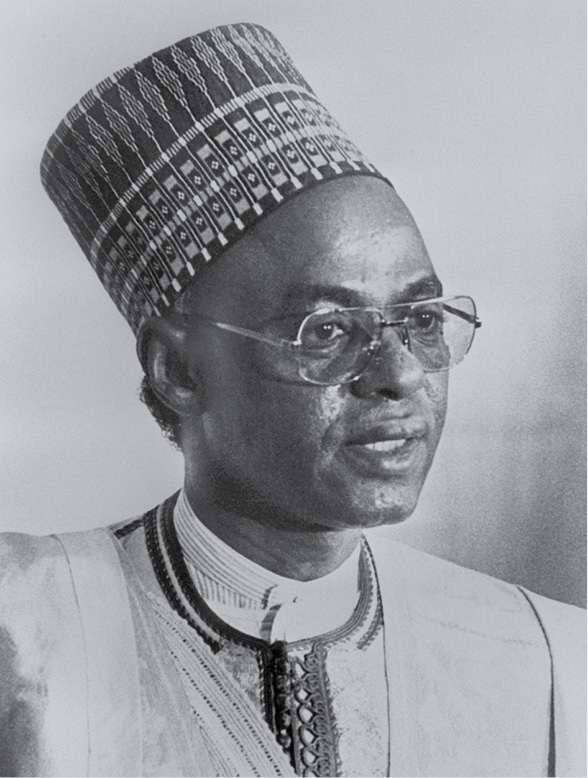Punch’s dastardly punch
Punch newspaper’s editorial on the late President Shehu Shagari is a dastardly punch on a man whose life and times were of service to country and community. Indeed it came as no surprise that Punch would sound a discordant note on his passing given that the paper was among those print-media outlets that pressed the […]

Former President, Alhaji Shehu Shagari
Punch newspaper’s editorial on the late President Shehu Shagari is a dastardly punch on a man whose life and times were of service to country and community. Indeed it came as no surprise that Punch would sound a discordant note on his passing given that the paper was among those print-media outlets that pressed the notion of a “Stolen Presidency” in order to delegitimise his electoral victory against their preferred candidate – thereby virtually encouraging the overthrow of his government by the military.
Shagari’s background was nothing to be sneered at; he was a descendant of the ruling family of his home town who went on become a teacher. To members of his generation and the one before it, teaching was not a humble but honourable profession, a stepping stone to greatness, as proved in his case – multiple ministerial appointments over a period of nearly twenty years culminating in his presidency in 1979.
Shagari’s long stay in government indeed “prepared him for a higher calling”, his reluctance to engage more deeply in the rat -race had more to do with the experience of the political class since 1966. That his contemporaries across the country would seek and trust him to lead was no small measure of confidence in his experience and disposition.
The “relatively buoyant economy” the military left was always captive to the vagaries of the world oil market; up to today we haven’t been able to moderate the effects of oil-price gyrations on our economy. The state-owned enterprises Shagari inherited weren’t run down under his watch; his administration even added to the Nigeria Airways fleet three or so Airbus aircraft. The depletion of the NNSL vessels came after his ouster. Nigerian Railways Corporation was already wobbling in the mid-1970s, prompting General Obasanjo to contract Rail India to manage it for a while. It’s true however that Shagari didn’t get to deal with the problems of the Railways. The low-cost housing programme wasn’t a success, mismanaged as it was by a coalition of civil servants, contractors and local party potentates.
The Second National Development Plan 1975-1980 launched by General Gowon was prepared when Shagari was Federal Commisioner of Finance and Economic Development, so he was familiar with its details. As president he continued its implementation. It’s false assertion that his administration “blew” the Ajaokuta Iron and Steel Project, in fact it grew it such that most of it was completed by the time his ouster. The construction of both Jebba HEP dam and the Egbin Thermal Power station began during his time in office, to be completed in 1984 through 1987.
At independence Nigeria was roughly at the same level of economic development as Malaysia but certainly not Brazil. The Civil War dampened progress but soon picked up after the return of peace. The textile industry remained buoyant during the Shagari era, it was only in the early 1990s when China began to export textile materials in volumes to Africa that its woes began. Nigeria’s accession to the World Trade Organisation in 1996 completed the destruction of our textile industry – and many others.
The Shagari administration established universities (of technology) at Abeokuta, Akure, Owerri, Bauchi, Minna and Yola. He was earlier on, among the trio of ministers in the government of Tafawa Balewa – others being Jaja Nwachukwu and Festus Okotie-Eboh – who midwifed the establishment of the Federal Government Colleges/Unity Schools system.
Shagari administration’s response to the warning of an impending economic crisis in 1982 must have context: it was the target of unremitting hostility from Chief Awolowo’s acolytes such that every statement from that side could only be warily received. Remedial measures were taken when the situation became clear.
Scandals have been part of every administration in the country, current ones overwhelming past malfeasance, the important thing being no dirt could be attached to him or his Vice President despite intense investigation by the succeeding military government. Branded champagne? Vanity. Private jets owned by ministers? No proof of that in the Second Republic.
Ultimately, it was the will of the people that made Shagari president against an array of candidates touted as prepared for the job. He acquitted himself well enough, democracy and freedom were protected even in the face of unbelievable opposition provocations. Shagari’s passing is mourned by Nigerians who acknowledge his statesmanship as much as his humanity. A “gentleman politician” – in the words of the Guardian.
M T Usman, Kaduna .
